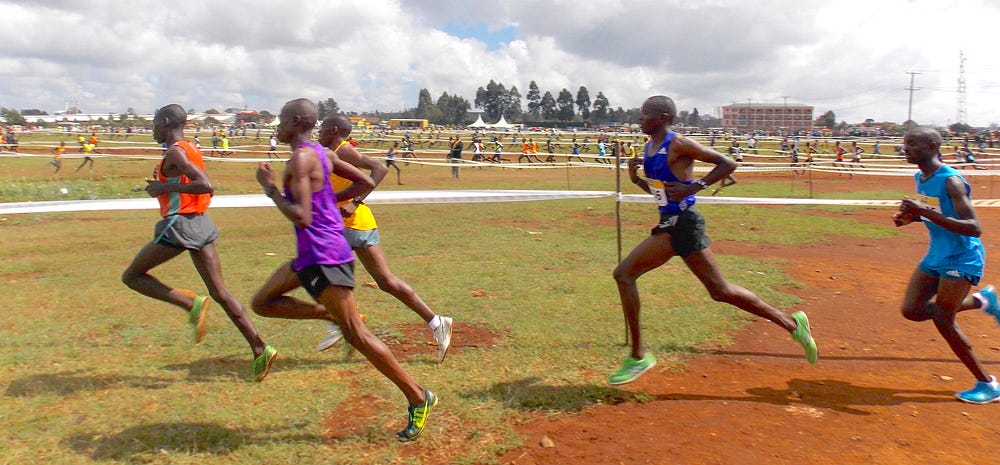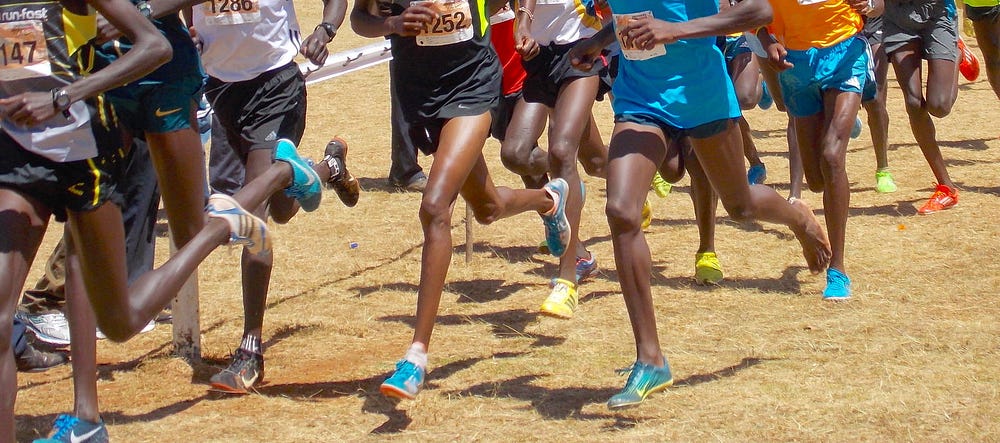It only took a slight touch on my leg to send me flying. I hit the ground of Eldoret Sports Club, and then a knee that got the back of my head as I tried to get up. I had no choice but to lie down on the ground until the hundreds of athletes behind had jumped over me before I could get back up and start running again. Once I did I was straight back into tackling the many curves on the course, trying to overtake others without getting spiked, springing over obstacles, and dealing with the occasional pushing and shoving for position.
It may sound a like a lot of pain and misery, but it’s exactly why cross country races are my favourite.

In cross country, marathon and track runners get the rare chance to compete against each other as the distance and the timing of cross country season (September to March) is perfectly suited to the training schedules for both groups of athletes. Last year, I ran in the same race with Geoffrey Mutai, the legendary 2:03:02 marathon runner, and Asbel Kipprop, the 3:26.49 1500m runner.
Standing next to Kiprop at the starting line, I noticed he was a bit nervous, just like everyone else. He caught me wondering out aloud about great champions like him appearing as scared as the rest of us. “Cross country races always make me tense at the starting line, unlike the track races,” he responded. This is Asbel Kiprop! The 1500m Olympic and world champion.
I can understand his nerves playing up. At the starting line, officials have the tough task of trying to control runners for a smooth start of the race, as everyone is jostling for position so they can be at the front of the pack before the course narrows towards that first curve. It is all too common for someone to tumble in that first turn, just as I did.

There is a close relationship between the way an athlete performs during a cross country season and how they will perform later on in the year. So no matter your discipline, everyone pushes hard to do well at cross country.
In 2011, Geoffrey Mutai ran very well at the cross country meets earlier that year and even made the team to represent the country at the world cross country championships. He then went ahead to run the fastest time ever ran in marathon at the Boston Marathon. This year, 2015, Geoffrey Kamworor started the year by winning the world cross country title and later on became the athlete that gave Mo Farah a hard run in the 10,000m race and settling for a Silver medal at the IAAF world championships in Beijing.
Perhaps it’s because of this focus that Kenyan runners have dominated the world cross country events since 1986. Kenya has won 24 senior men’s titles from that year, and the remaining four titles went to Ethiopia. This has made the IAAF World Cross Country Championships event seem like an affair among the East African athletes and could be one of the reasons why the event was eventually turned bi-annual. This global dominance also means that the local races are some of the most spectacular cross country races in the world. That’s why I love them, even if it means a tumble in the mud every now and then.




